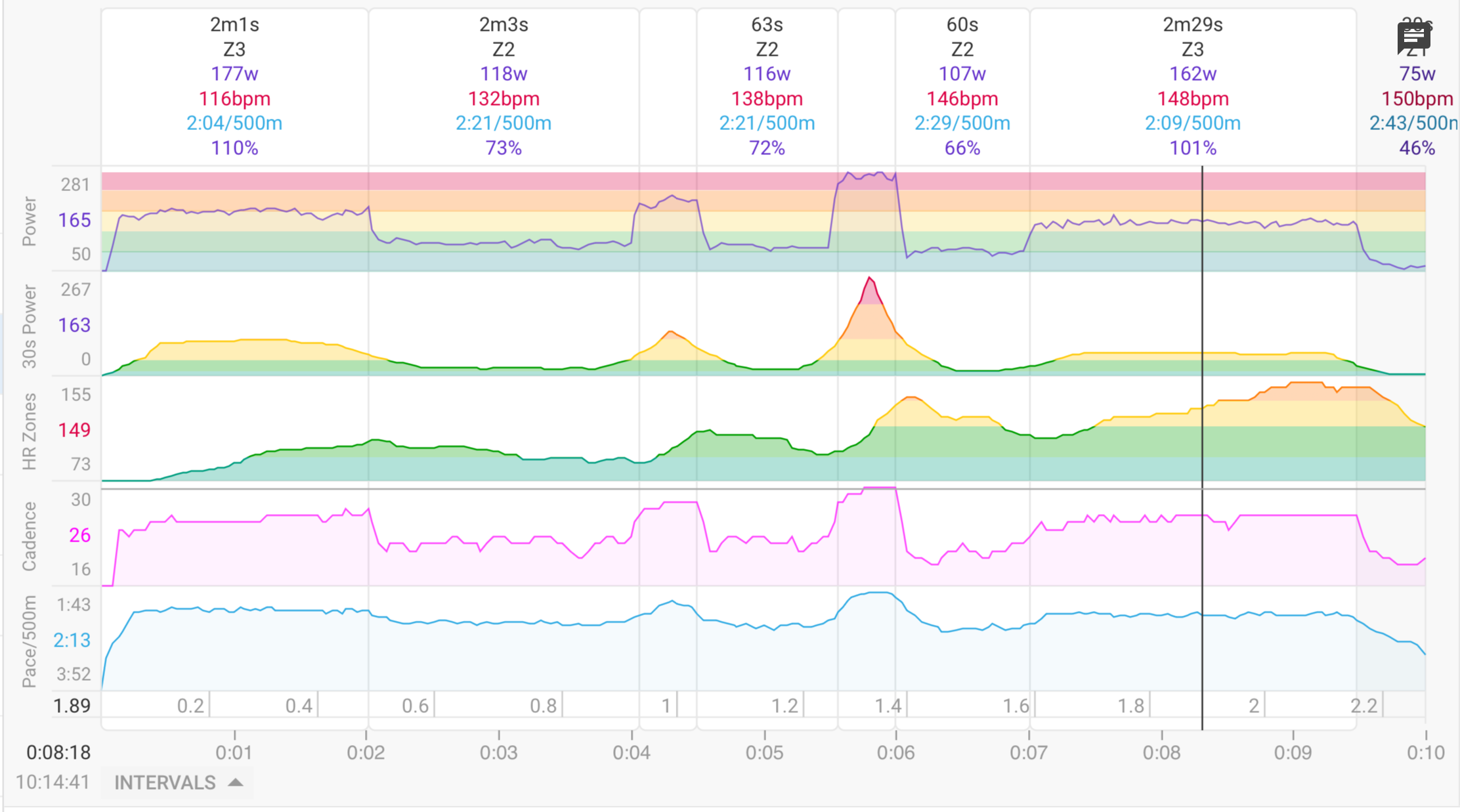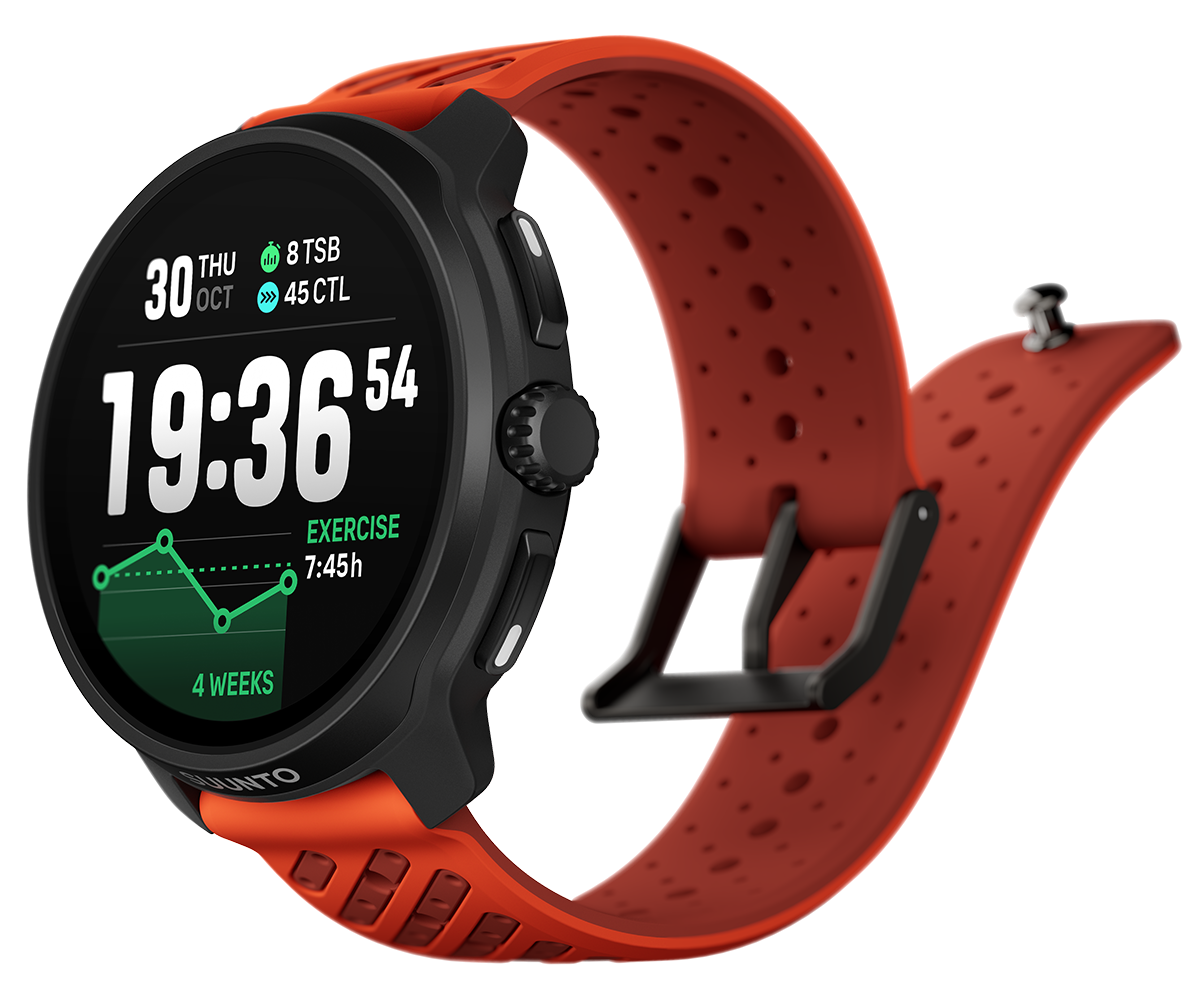Suunto Race 2 General Discussion
-
@GVW18380 For me, SR1 is an awesome watch. I rarely experience good HR readings with it but for every thing else is great. I used it for nearly 18 months and can’t recommend it enough. Especially if you can grab it at discounted price.
-
Are there experiences with the Race 2 AOD display brightness compared to the last AMOLED generation? Is it better readable, e.g. for Cycling where you cannot use Lift to wake?
-
When will Race 2 be available for sale in Türkiye?
-
@VoiGAS if you use Race 2 or the other AMOLED devices attached to the bike handlebar, then the screen will dim.
As bright and readable it is on the wrist, I would not recommend the mentioned setup as a bike computer replacement on the bars… -
@VoiGAS Since I don´t have the Race 1 anymore and t will be subjective answer. I commute to work and last week we have great weather with a lot of sun and I experience the readability is better in race 2. I have absolutely no problem. I also think the rise to wake is working better.
-
@Highlands Having a crap OHR kind of defeats the point of having a sports watch for the casual user doesn’t it?
-
@Steven-Hambleton During serious activities I use the H10 strap. During rest/sleep the oHR readings are OK. Besides, I knew very well what I was buying before paying even though I’d love a better oHR. Anyway, that particular watch, IMHO, is one of the best sports/mountain watches money can buy.
-
I sometimes wonder how many of Suunto/Garmin/Polar/Coros/etc users do really base their workouts on HR. It is nice to have good HR readings but if you do not base you training on that… it is not really important.
I’ve been running and planning my runs since 2007, and I’ve never used heart rate for anything other than just checking the readings out of curiosity.
Just another opinion on this

-
@Luis-Andés-Olmedo To each their own, all of my workouts are planned around HR

-
@Elipsus said in Suunto Race 2 General Discussion:
@Luis-Andés-Olmedo To each their own, all of my workouts are planned around HR

Then for you HR readings are really important

About 15 years ago (or so), I tried to switch from pace-based training to heart rate-based training, but I didn’t succeed. My heart rate never matched my feelings, so I decided to go with my feelings and my pace.
-
@Luis-Andés-Olmedo I would never base my training purely on HR but I mostly use pace. But for that to work you need to know your current training status/lactate threshold pace which is sometimes quite hard if you come out of a phase without valuable race times. If you train multiple years while also taking a deep look into your heart rate during whole training periods (build-up, peak, recovery), after sickness and injuries, you can see a lot of patterns that give you very valuable information on your training stress, performance status, recovery status. For me accurate HR values during training and also sleep/rest periods are therefore very important as they allow me to better control volume/recovery and also paces and to verify my subjective perception by objective values.
As it is so important for me, I would never rely on OHR during training and always use a HR belt. But reliable OHR is essential for daily HR and HRV information (sleep/rest) and therefore needs to accurately work. -
@brave_dave said in Suunto Race 2 General Discussion:
But reliable OHR is essential for daily HR and HRV information (sleep/rest) and therefore needs to accurately work.
Different users, different use cases. It was not my intention to criticize others, just to express my opinion and see how important is HR for others

I never use the watch to sleep, I have all metrics and readings related to health and training status disabled, or I’m simply not interested in them.
When I am tired or stressed I tend to know it. When I need more rest or recovery, I also tend to know it.
-
@Luis-Andés-Olmedo said in Suunto Race 2 General Discussion:
@brave_dave said in Suunto Race 2 General Discussion:
But reliable OHR is essential for daily HR and HRV information (sleep/rest) and therefore needs to accurately work.
Different users, different use cases. It was not my intention to criticize others, just to express my opinion and see how important is HR for others

I never use the watch to sleep, I have all metrics and readings related to health and training status disabled, or I’m simply not interested in them.
When I am tired or stressed I tend to know it. When I need more rest or recovery, I also tend to know it.
That said, I will probably go for the Race 2

-
@Luis-Andés-Olmedo I didn’t see it as a criticism, I just wanted to highlight that physiological values can be really important and that own perception can be totally wrong or useless sometimes. If you train on a high performance level for some years, you realize that sometimes you feel mentally exhausted or stressed but your body is ready. Other times you are totally motivated but your body needs rest or less training stress because you have an subtle or upcoming infection or motivation caused overreaching. If you learn to interpret these physiological values, they can really improve your training.
-
@brave_dave said in Suunto Race 2 General Discussion:
@Luis-Andés-Olmedo If you train on a high performance level for some years, you realize that sometimes you feel mentally exhausted or stressed but your body is ready. Other times you are totally motivated but your body needs rest or less training stress because you have an subtle or upcoming infection or motivation caused overreaching
I know :). After years of pace/feelings based training you also learn to detect those conditions. Sometimes you realize when you’ve already started the workout and need to adapt…

Maybe it is too old-style but for me having to pay attention to all of those metrics always increased my stress levels instead of helping me to train better.
But yes, I agree, if you base you training on HR, for sure it is important to have accurate readings. That is why I wrote “I sometimes wonder how many of Suunto/Garmin/Polar/Coros/etc users do really base their workouts on HR”.
I believe that many users want accurate HR only to have accurate HR, not because they really analyze and use the readings.
-
I do a variety of modalities: running, cycling, indoor rowing, gymnastics rings, yoga, dumbbells, kickboxing, etc. and one thing I look at is my overall time in HR zones across modalities. If HR is inaccurate, then it can throw these totals off. An early kickboxing session I did with Suunto averaged my HR as 155bpm while a Polar H10 strap had the session at 133bpm which is a major difference as my LT1 is about 144bpm. This convinced me I need to rely on my HR strap connected to the Suunto in many cases.
I also look at individual sessions. Here’s an example of where I am doing indoor rowing, and comparing my first interval (177w average) with the final working one (162w average) I can see different effects on my HR, and judge recovery of HR after intense intervals.

So it’s not just the “live” HR where I need accuracy but also in the reporting afterward.
-
@Luis-Andés-Olmedo i think HR is very important think. Almost all metrics like PTE, Calories, Recovery time, Fitnes level etc is based on HR. If this metric doesn’t work than everything i mentioned above is unusable. So if HR works everythink is great but if it doesn’t than only usable metric other than that is pace. Which can be measured by any cheap stopwatch if you are on known track. I understand that for running pace is really important. But in other sports like hiking, bike etc i think metrics like HR, cadence etc are more important.
-
@Tomas5 For now, when I need precise HR mesures (and I agree with you, it’s important), I use chest strap. Even if SR2 OHR seems better, I would probably continue to use HR strap anyway for running, cycling. I use OHR for my everyday mesure, sleep tracking, or tracking for walk, other sports.
But for running and all high intensity activies, I’ll continue to use chest strap until we have a OHR (or other way) to have perfectly reliable data.
Plus HR strap allows VFC mesure (zone sense).
So for me, OHR are getting better and that’s a good thing, but for now it’s a vain debate to hope to have perfect mesures with it. -
@Luis-Andés-Olmedo Pace is meaningless in the mountains and HR not much better. I use RPE for training now complement with ZoneSense, which is a game changer for me. ZS is not a proxy for HR
-
@Brad_Olwin I mainly do rpe too, just checking my jr sometime for 90% of my training (ohr I don’t use belt that much)
When I do intervals (short or long) I put a belt but even this I use rpe
I quantify my load using foster and it works quite well, when I run I know what is my Hr and I use the watch as a confirmation
Btw and sorry for the off topic but did you know if there is a way to define an rpe in the suunto app after exercice was recorded?
